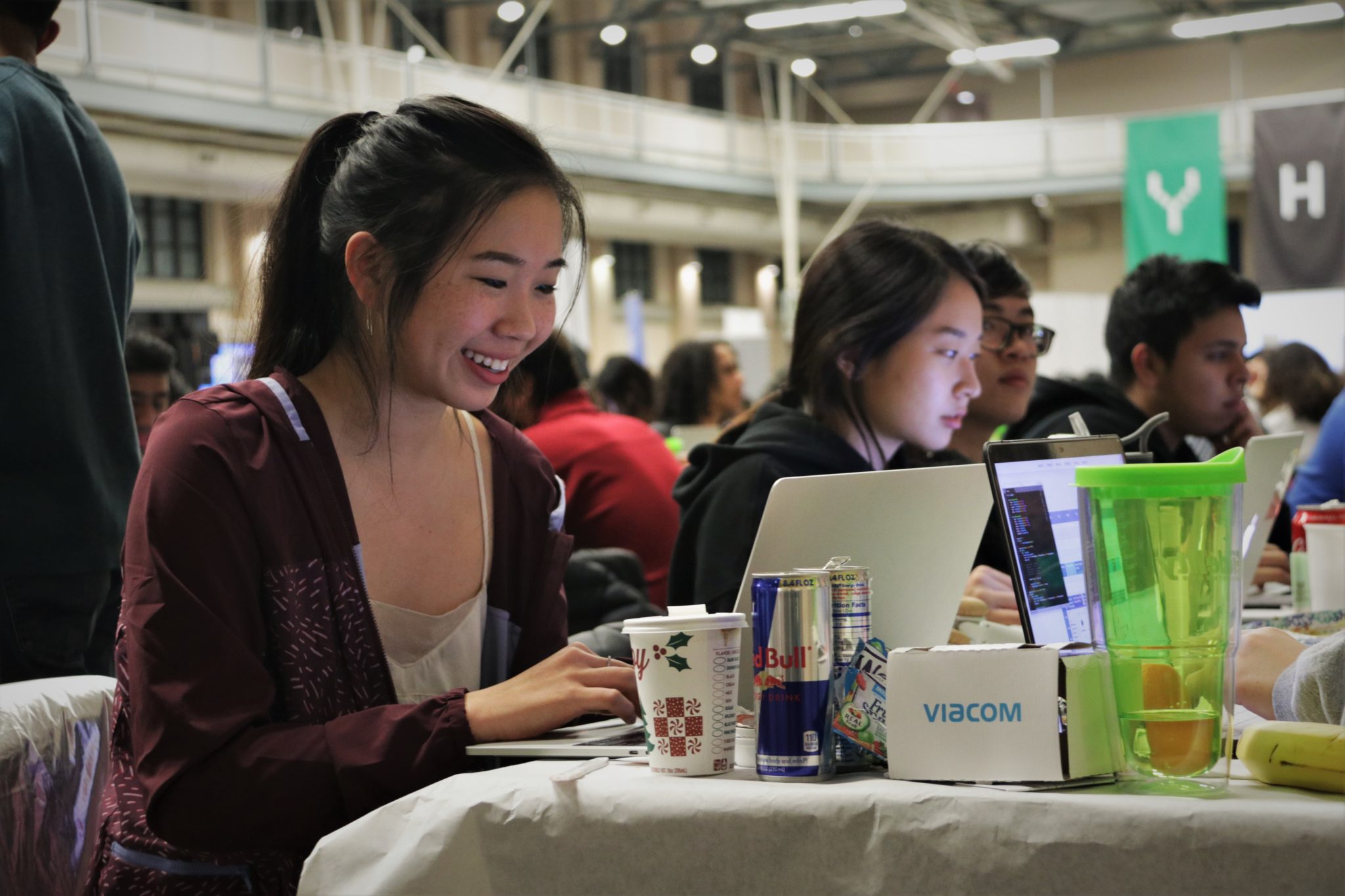
Yale’s fifth annual YHack hackathon drew 1,100 students from colleges across the country and beyond to Payne-Whitney Gymnasium from Friday to Sunday to create hacks, or computer science solutions, to a range of problems.
From 8 p.m. Friday evening to 8 a.m. Sunday morning, attendees applied programming languages, machine learning and other computer science skills to complete challenges issued by the event’s many sponsors, which included companies such as Google, Viacom and Fidelity.
“The nerds are changing the world,” said Mark Gordon, the president of product and innovation at Informa, in a speech at the event’s opening ceremony.
This year’s challenges included developing a hack to make college students more prosperous, building a storage solutions configurator that can work in augmented reality, and creating a project that reflected the future of finance.
Some of the conference’s sponsors included law firms, medical technology firms and Yale’s Poynter Fellowship for Journalism, event director Kristina Shia ’19 said.
“We saw a shift away from traditional Silicon Valley software companies having a big presence,” Shia said. “We still had companies like Google and Facebook at our event, but we’re seeing more interest in a slightly broader definition of tech.”
YHack’s directors began planning the student-run event back in February and raised over $200,000 for participants’ travel expenses, support staff and other amenities. Event director Shivam Sarodia ’19 noted that the team was somewhat surprised by the high turnout but still managed to provide all attendees with food and sleeping arrangements. Due to the volume of users, some students had trouble accessing the internet to work on their projects.
The opening ceremony took place at 7 p.m. on Friday and featured guest speakers from a number of the conference’s sponsors. Gordon spoke at length on the importance of understanding technology in an ever-changing world, asking students how they planned to “future-proof” their careers. He went on to note that a growing number of fields — from finance to medicine — are looking to hire students with computer science backgrounds.
Throughout the hackathon, student volunteers and representatives from several sponsors also held informational talks and interactive workshops to supplement the challenges. Workshops included an “Idea Inspiration Workshop” by Design for America, which introduced attendees to building Android apps, and one in which student volunteers taught participants how to use the Google Cloud Platform in projects.
On Friday evening, Mary DeBree, head of content policy at Facebook, spoke to participants about the social media network’s efforts to counter fake news and disinformation on its platforms.
“Fundamentally, we’re working on two key principles: The first one is expanding expression, and the second one is keeping our community safe and respectful,” she said.
DeBree outlined several tools that Facebook has recently implemented in order to further those objectives, including a third-party fact-checking process, algorithms that reduce the visibility of misleading articles and changes to the user interface that expose users to supplementary readings and context about news stories in their feeds.
However, she acknowledged Facebook’s responsibility to take further action with respect to fake news and said the company was excited to see the solutions that participants would develop over the course of the hackathon.
“It’s a really important topic, and what Facebook is doing currently hasn’t been super effective despite what they’re saying,” Shoumik Chowdhury ’21 said.
Chowdhury and his team created an app for the Poynter Fellowship’s challenge, which required participants to build a policy or technical hack to counter fake news on social media and search engines.
According to Facebook software engineer Jason Brooks ’16, Facebook is one of the largest employers of Yale students in the technology industry. The company attends the annual event to support the Yale computer science community and find talented students to potentially hire, he added. In fact, two of Facebook’s software engineers present at the conference had been YHack directors while at Yale.
Over the course of the three days, more recreational events also took place, from performances by Yale student groups to snack breaks, a meditation session and even a rap battle.
At the end of the event, a panel comprising leaders in technology and industry, including several Yale alumni, judged more than 270 projects for their creativity, practicality and technical complexity. At the closing ceremony on Sunday, one overall prize was awarded, as well as several “track” prizes for the best projects in education, finance, health care and civic issues. Prizes included everything from iPhone Xs and Kindles to an all-inclusive vacation package from JetBlue for an all-expenses-paid trip to Washington, D.C. from the Poynter Fellowship.
Maya Chandra | maya.chandra@yale.edu
Saumya Malhotra | saumya.malhotra@yale.edu







